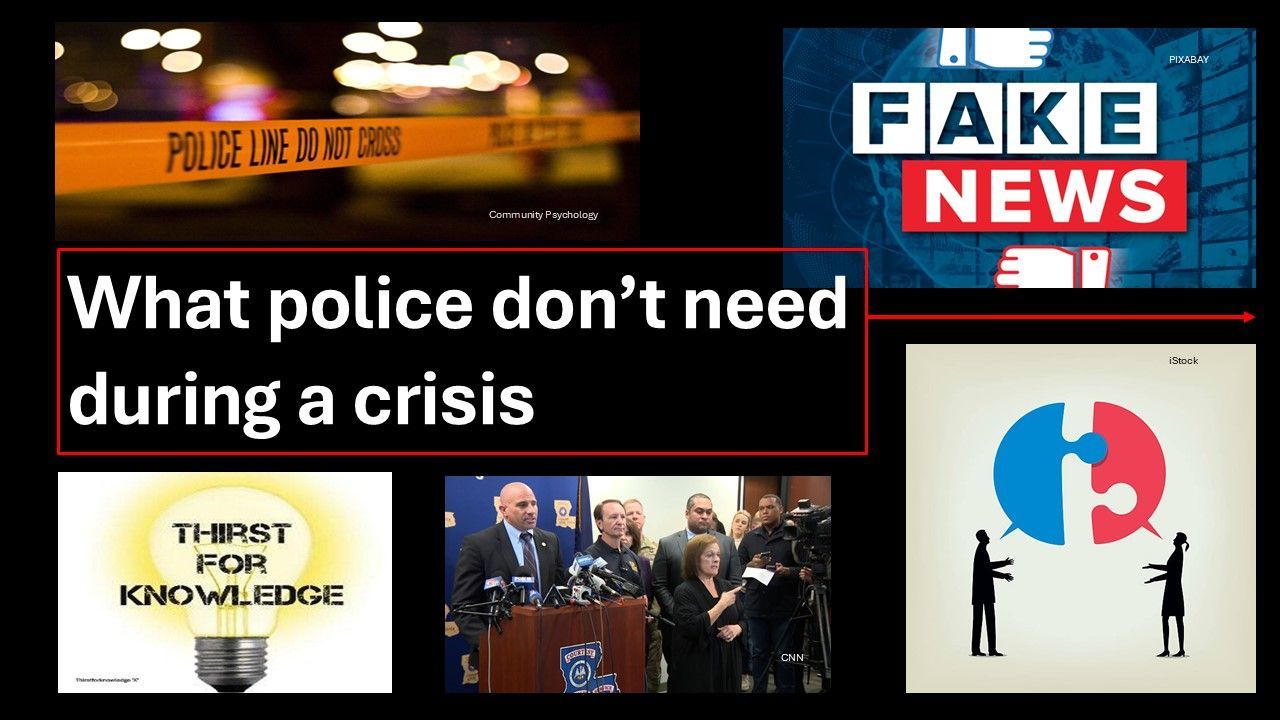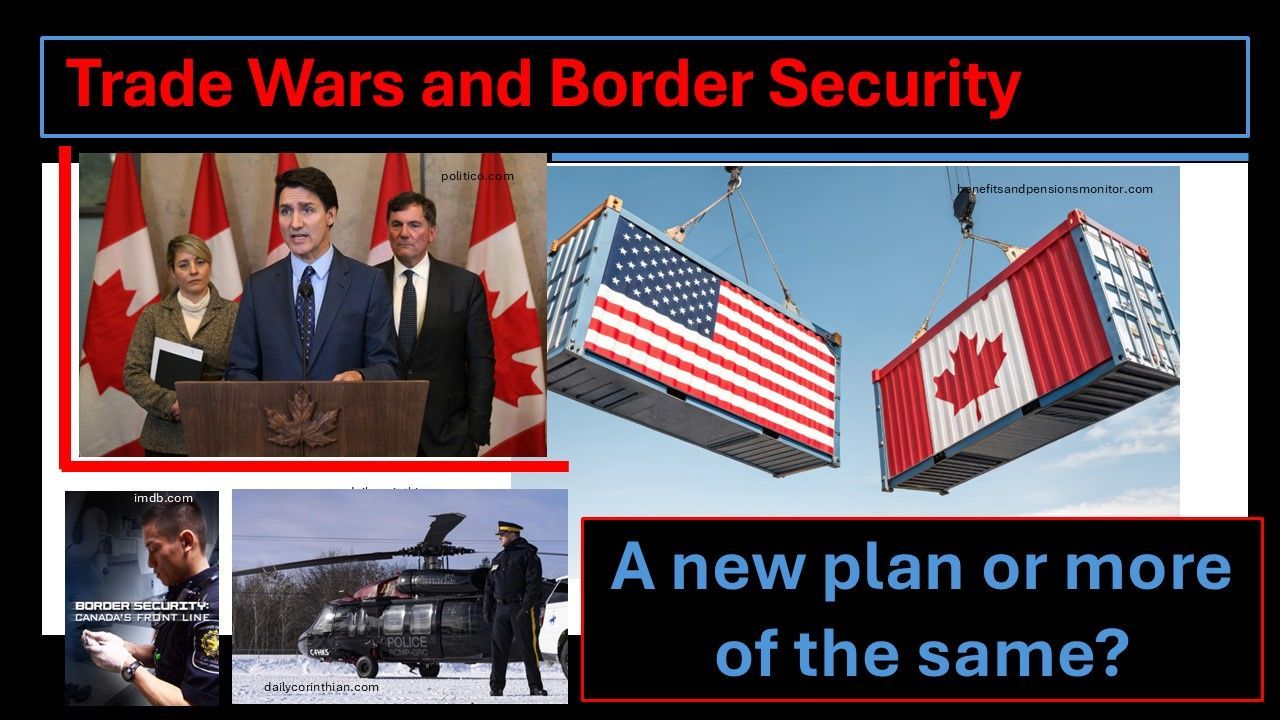New Paragraph

In April 2020, a man dressed as an RCMP officer and driving a mocked-up RCMP car, shot and killed 22 people in rural Nova Scotia. Three others were wounded. This horrendous act of violence completely shocked communities, a province and a nation to their core.
Many questions followed from concerned community members, the media, grieving families and governments at all levels. How did this happen? Why? Could it have been prevented or stopped sooner? Could the public have been better warned? All valid enquiries undoubtedly, many of them directed at the police of jurisdiction, the RCMP.
This was the largest murder spree in Canadian history and occurred at 16 locations over an immense geographic area. The killer set fires at many of the shooting locations; changed clothing and vehicles at times; and evaded police for half of a day before being shot and killed by two RCMP officers at a rural gas station.
There were but a handful of officers working in that jurisdiction when the mayhem began that evening. Many others were called in to assist over the 13-hour ordeal, from far away RCMP detachments and provincial headquarters units. One RCMP officer was killed and another injured by gunfire early in the series of events. The whole traumatic event hit the involved officers very hard of course. The series of deaths and destruction they witnessed that night was not dissimilar to a theatre of war. It would have been a policing challenge for any police force on the continent, let alone for a small contingent in a large policing jurisdiction.
The RCMP are Canada’s federal police from coast to coast, but in eight provinces they are also under contract to be local police in many jurisdictions as well as the “provincial police”. That is the policing environment existing in Nova Scotia.
It is not a secret in the Canadian policing world that the RCMP are very short of staff in their contract provinces. National security priorities have reportedly drained RCMP provincial staffing complements, causing many detachments to be crucially short of personnel compared to officer workload.
The RCMP has conducted an extensive investigation including the forensic examination of numerous crime scenes, to attempt to learn everything they can about the killer Gabriel Wortman, including his history of violence and the motive behind this mass murder; the origin of the involved firearms and ammunition; who might have known or been involved; and much more, including their own response and decision-making issues within. Police services always conduct an After-Action Review following any major event, including command and control; resources; policies and training issues that may require changes in order to more effectively face similar events in future.
Undoubtedly, despite trying their very best to protect and save lives and capture a killer that night, mistakes would have been made. Not with any malice, but human beings under intense duress will make errors – some inconsequential, and some critical. And this was the biggest and worst event any police officer in Canada has ever faced. That isn’t meant to excuse mistakes, but to put the reality of the challenge into context.
On top of public criticism of the RCMP in terms of their response to Gabriel Wortman’s senseless reign of terror, looms allegations of leadership failings within the senior management of the RCMP and most recently, against the commissioner, then minister of public safety and the prime minister. It is important to note that RCMP Commissioner Brenda Lucki, Minister Bill Blair and PM Justin Trudeau all deny allegations against them.
The Mass Casualty Commission (MCC) was announced in late 2000 to conduct an independent examination of the Nova Scotia murders and response, and to make recommendations to protect communities in future. In short, the mandate of the MCC is to examine the responses of involved law enforcement and government programs.
The MCC subpoenaed documents from several agencies, including the RCMP, for examination and analysis, which is an exhaustive process. Witness interviews followed, some conducted in-camera by investigators and others by MCC commissioners on video. The subpoenas are not permissive. Agencies must produce all documents and not cherry-pick what is relevant.
Over the past few months criticisms of RCMP managers and executives, within the RCMP’s “H” Division (Nova Scotia) and headquarters (Ottawa) have risen and are disconcerting.
RCMP member frustrations over decision-making procedures among supervisors and managers during the hunt for Wortman have risen through the testimony of RCMP witnesses.
The Corporal in-charge of the “H” Division Emergency Response Team (ERT) was highly disapproving of management surrounding the lack of technology and air support faced by ERT members. He was also critical regarding what he viewed as a lack of emotional health support for his members by his management team, testifying that the situation was “disgusting.” Even more damning was his assertion that the RCMP is a “broken organization.”
The number of known deceased victims released to the public in the days following the murders by RCMP senior management came under dispute between lower-level officers and managers.
Most significantly, this past week, the MCC revealed that four pages of notes taken by Supt. Darren Campbell, a prominent RCMP figure in the investigation, were not provided in the disclosure and only handed over when the MCC expressed their valid concern about the omission. Who removed them and why is yet to be made clear, but no other notes are suspected to have been held back.
Campbell is a respected investigator, having served across Canada. These personal notes were written by him during an April 28, 2020 phone call between himself, A/Commissioner Lee Bergerman and Lia Scanlan, the RCMP’s civilian director of strategic communications, with Commissioner Lucki and others in Ottawa, in which Lucki expressed her displeasure that information regarding two of the firearms Wortman used in the murderous rampage was not publicly released as per her direction. The allegation is that Lucki had specifically instructed Strategic Communications to release that information in a press conference, but they did not. According to Campbell’s notes, Lucki claimed that she had promised the Minister of Public Safety and the PM that this information would be released to assist them with forthcoming firearms legislation, which was subsequently released within days of the telephone admonishment. Campbell admitted that he had instructed the communications personnel to not release the information out of fear that the release would jeopardize ongoing investigations into those firearms. In my opinion that seems like a well-reasoned position for an experienced homicide investigator to take early in an investigation. Campbell also wrote that some in the meeting "were reduced to tears and emotional over this belittling reprimand."
Of course, this disclosure raised much criticism and media coverage, leading the commissioner, Minister Blair and the PM to all express concern and confusing denials that stated that they did not interfere in the investigation. Lucki did subsequently say that she regretted the tone of that telephone call but stood firm that she had not made the statements claimed by Campbell.
In my view, Supt. Campbell put his career in great peril when he made the notes about his commissioner. If the notes were contrived, the move was complete insanity. If they were accurate, he was the pillar of integrity. I suspect the latter, particularly given that his immediate boss, Bergerman, was with him and made some similar notes. And the nagging question in my view is what would be the motive for either of them to risk their careers by making false notes about their boss at that time? The true test will be when Bergerman (now retired) and Campbell both testify under oath at the MCC. Will they risk criminal charges of perjury by sticking to that story if it isn’t true? I think not.
As far as the minister and PM go, who knows. It’s certainly not the first time the PM has been dimly viewed in a “he said, she said” situation (i.e. SNC Lavalin). Will every aide to them support their version if asked? Some of them are very young and have long careers ahead of them.
Will Commissioner Lucki continue to stick to her story that she didn’t say it and that government didn’t ask her to? Will others in the room with her at the time support her version of the events? They’ll certainly risk all if they do and if it isn’t true. Regardless, it has become a public battle between some top officers in the force and the timing isn’t pretty.
RCMP member morale is extremely low across the country due to a variety of working condition and public controversy issues. Some municipalities and some whole provinces are actively examining alternative policing options. From member and community trust perspectives this is not at all good.
PM Trudeau and a few ministers are already surrounded by finger-pointers regarding their inconsistent statements concerning the Emergencies Act enactment last winter.
The bottom line here in terms of Brenda Lucki, Bill Blair and Prime Minster Trudeau is that true leadership should be about honesty, integrity and trust, and involves making decisions that are in the best interest of those being served and being led, and NOT about misleading or lying to those groups to protect the career(s) of the so-called leader.
Somebody isn’t telling the truth in this mess. It’s time for that person or persons to belly up to bar, be honest with those being served (Canadians) and those being led (the men and women of the RCMP) and fall on a proverbial sword or two.
Canadians and RCMP members alike deserve that from their leaders. Anything else is a complete failure of leadership.
Chris Lewis served as Commissioner of the Ontario Provincial Police from 2010 until he retired in 2014. He can be seen regularly on CTV and CP24 giving his opinion as a public safety analyst.




